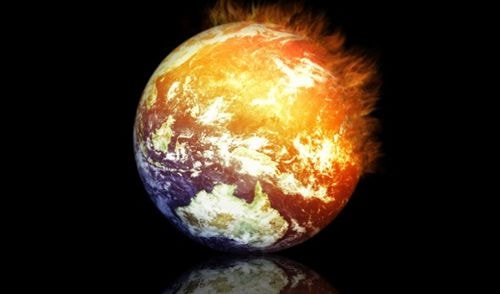The Earth may change shape due to global warming
The Earth's crust could be reshaped by the impact of giant moving ice sheets, a consequence of global warming.
 |
| Global warming is on the rise. Illustration: Gregladen |
In a study published in the journal Nature on October 1, Michele Koppes of the Department of Geography at the University of British Columbia compared glaciers in Patagonia and the Antarctic Peninsula. Koppes and her colleagues found that the Patagonian glaciers were hotter, moved faster, and caused more erosion than those in Antarctica. This is because the higher temperatures and melting ice help to “lubricate” the bottom of the glaciers.
"We found that glaciers in Patagonia erode 100 to 1,000 times faster than in Antarctica," Koppes told Science Daily.
"Antarctica is warming, and as it gets above 0°C, all the glaciers move faster. We see huge ice sheets starting to move faster, eroding more, creating deeper valleys and pushing more rock into the ocean." This process will dramatically change the shape of the Earth's crust, scientists say.
This erosion further complicates the impacts of climate change on the polar region. Faster-moving glaciers increase sedimentation downstream and on the continental shelf, which can affect fisheries, dams, and access to clean water for mountain communities.
“The polar continental margins are extraordinary biodiversity hotspots. If you introduce more sediment into the water, you are changing the aquatic habitat,” says Koppes.
The Arctic, one of the fastest-warming places on Earth, is set to be hit hard. Temperatures have risen by 4 degrees Celsius in the past 50 years, putting glaciers on the brink of a major change. We could see them move 100 times faster if the climate changes and temperatures stay above zero.
Koppes and his colleagues’ findings also address a controversial question among scientists: when glaciers have had the greatest impact on shaping Earth’s landscapes and landforms. Glaciers cause the most erosion near the end of each ice age, not when ice cover is at its heaviest. The last major ice age in the Vancouver area ended about 12,500 years ago.
According to VnExpress
